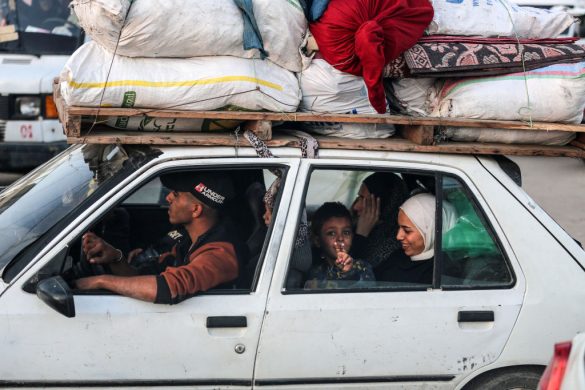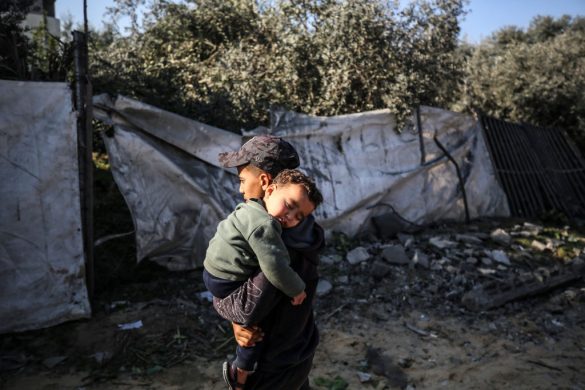Migrantarbejdere i Qatar får ingen beskyttelse fra myndighederne mod udnyttelse og overgreb og må finde sig i stavnsbånds-lignende forhold, fremgår det af ny rapport som Amnesty International offentliggjorde i dag.
London, 23. april 2014 (Amnesty International): The Qatari authorities are failing to protect migrant domestic workers who face severe exploitation, including forced labour and physical and sexual violence, Amnesty International said in a new report published today.
“My sleep is my break”: Exploitation of domestic workers in Qatar paints a bleak (dystert) picture of women who have been recruited to work in Qatar on the basis of false promises about salaries and working conditions, only to be made to work extreme hours and seven-day weeks. Some women described how they were subjected to appalling episodes of sexual and physical violence.
“Migrant domestic workers are victims of a discriminatory system that denies them basic protections and leaves them open to exploitation and abuse including forced labour and human trafficking,” said Audrey Gaughran, Amnesty International’s Global Issues Director.
De fleste er kvinder fra det sydøstlige Asien
“We have spoken to women who have been terribly deceived, then found themselves trapped and at the mercy of abusive employers, banned from leaving the house. Some women said they were threatened with physical violence when they told their employers they wanted to leave.”
There are at least 84,000 women migrant domestic workers in the Gulf state, mainly from South and South East Asia. Many are forced to work excessive hours. Researchers interviewed women working, in some cases, up to 100 hours per week, with no day off.
Some said they had been promised good salaries and decent working conditions before leaving for Qatar, only to have their hopes shattered on arrival.
Ingen lovgivning om arbejdstid
Under Qatari law there are no limits on working hours for domestic workers and there is no requirement to give them a day off. They are also unable to lodge complaints with the Labour Ministry.
“Women who find themselves in abusive households face utterly miserable conditions. They have few options – if they choose to simply to get out of the house, they will be branded ‘runaways’ and are likely to end up being detained and deported,” said Audrey Gaughran.
Kvinderne er stavnsbundne til arbejdsgiveren
Domestic workers are subject to the restrictive sponsorship system, which prevents migrant workers from leaving their job or the country without their employer’s permission. While some women find good jobs and are treated well, women facing abuse are left with little choice but to “run away”, putting them at risk of being arrested, detained and deported on charges of “absconding”. Up to 95 per cent of the women held at Doha’s deportation centre in March 2013 were domestic workers.
An Indonesian woman being held at the deportation centre after fleeing from sustained physical abuse, showed researchers a deep scar on her chest where her female employer had branded her with a hot iron. She told researchers she had been forced to work seven days a week, was not paid for months and was banned from leaving the house. She eventually managed to leave the house, only to be picked up by police and detained.
Læs hele rapporten på:
http://www.amnesty.org/en/news/foreign-domestic-workers-qatar-shocking-cases-deception-forced-labour-violence-2014-04-














